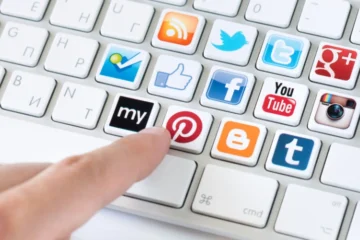The modern workplace is built on two key aspects: productivity and performance, and appreciation and connection. Companies that look beyond paychecks and promotions and treat their employees as individuals cultivate stronger relationships and compel a higher level of engagement. In a competitive environment, corporate gifts are not just seasonal, but an opportunity to create culture, build loyalty, and improve morale. When delivered with meaning and intention, corporate gifting can turn daily desk life into a joyful occasion, while reinforcing a culture of pride and belonging within an organization.
Five Ways Employee Gifting Builds a Winning Workplace Culture
Gifts are more than a gesture—they can communicate values, build relationships, and influence workplace culture. Here are five ways businesses can make gifting more meaningful:

- Personalized Corporate Gifts
At the core, meaningful gifting is all about personalization. You can appreciate your employees with personal and thoughtful custom corporate gifts. From personalized desk accessories or engraved souvenirs to curated boxes around their personal interests, assigned gifts promote the appreciation of individuals. When employees are appreciated, they develop a stronger connection with the organization and stay motivated and retained. Personalized gifts provide a greater sense of inclusion through acknowledgment of equity and being an authentic self at work.
- Creating Shared Experiences
While giving an individual gift may have its own personal significance, giving an experience has its collective significance, which brings the team together. The experience could be organized as team events, workshops, outdoor adventures, or gift tickets to a museum or symphony. Either way, the team is building a common experience or memory together using the resources of the company. Experiences that connect coworkers often yield better collaboration at work and increased connection with their coworkers, while improving the workplace culture more than selecting material gifts. Shared experiences can be especially useful when working in a hybrid or remote workspace where individuals want to supercharge human connection with intentionality or engagement. Shared experiences unite employees to feel part of a team and act as a reminder that the workplace is about staking a family claim to collective capacity building—and not solely individual capacity building.
- Recognizing Milestones and Achievements
Employee gifting holds even greater importance when associated with professional or personal milestones. Whether it be promotions, work anniversaries, or project completions, acknowledging the employee’s achievements along with thoughtful items is an enjoyable way to celebrate their accomplishments. Gifts can also be given to recognize personal milestones like birthdays, marriages, or other life events that demonstrate an interest in the person as more than just an employee. In either case, recognizing and helping to celebrate the employee’s milestone allows the organization to set a mold for recognizing successes, praising where due, and positioning appreciation consistently and sustainably. In time, milestone gifting leads to loyalty. Employees hope to keep being recognized and that their hard work and life path are being seen consistently.
- Reinforcing Company Values Through Gifting Choices
Gifts to employees can also serve as tangible examples of a company’s values. Choosing eco-friendly gifts, selecting gifts from local artists and artisans, or choosing ethically sourced gifts can align with the organization’s values. Employees recognize when gifts are connected to broader company commitments, and when the two are matched, it builds pride and trust. For example, if a company emphasizes sustainability, it could give sustainable gifts (or reusable items) to provide a department with a consistent signal about what the company values (values = beliefs) and does. Employees are likely to be more enthusiastic when they see companies conduct themselves with integrity, not only in their business practices but also in small but meaningful ways through gifts.
- Encouraging Wellness and Work-Life Balance
In the current challenging climate, wellness has become a focus. Employees and employers are driven by health. Offering wellness-themed items such as fitness gear, mindfulness kits, ergonomic desk tools, or a subscription to a wellness app can communicate care for employees’ wellness and well-being. Such items promote employee wellness outside of work and send a message that the organization cares about employee health—both mental and physical. By selecting wellness for a gift theme, organizations can encourage healthy actions to combat and prevent employee burnout or feeling overwhelmed, which is yet another signal to employees that there is a sense of balance even in a highly productivity-driven environment. When employees feel supported in their own individual wellness, they are more likely to remain motivated, happy, and engaged.
End Point
When approached deliberately and with intention, employee gifting presents tremendous opportunities for culture creation. Employee gifting possibilities include custom corporate gifts and wellness packages that recognize uniqueness; gifts that recognize milestones; and gifts that commemorate shared accomplishments—each occurrence an opportunity to build a bridge and inspire employees. Gifts can express appreciation in many different contexts; however, they can also provide building blocks for culture and a reminder to employees that they are valued and have support. Gifts are a tool that can intentionally create loyalty, enhance engagement, and reinforce a collective workplace where people thrive together.




